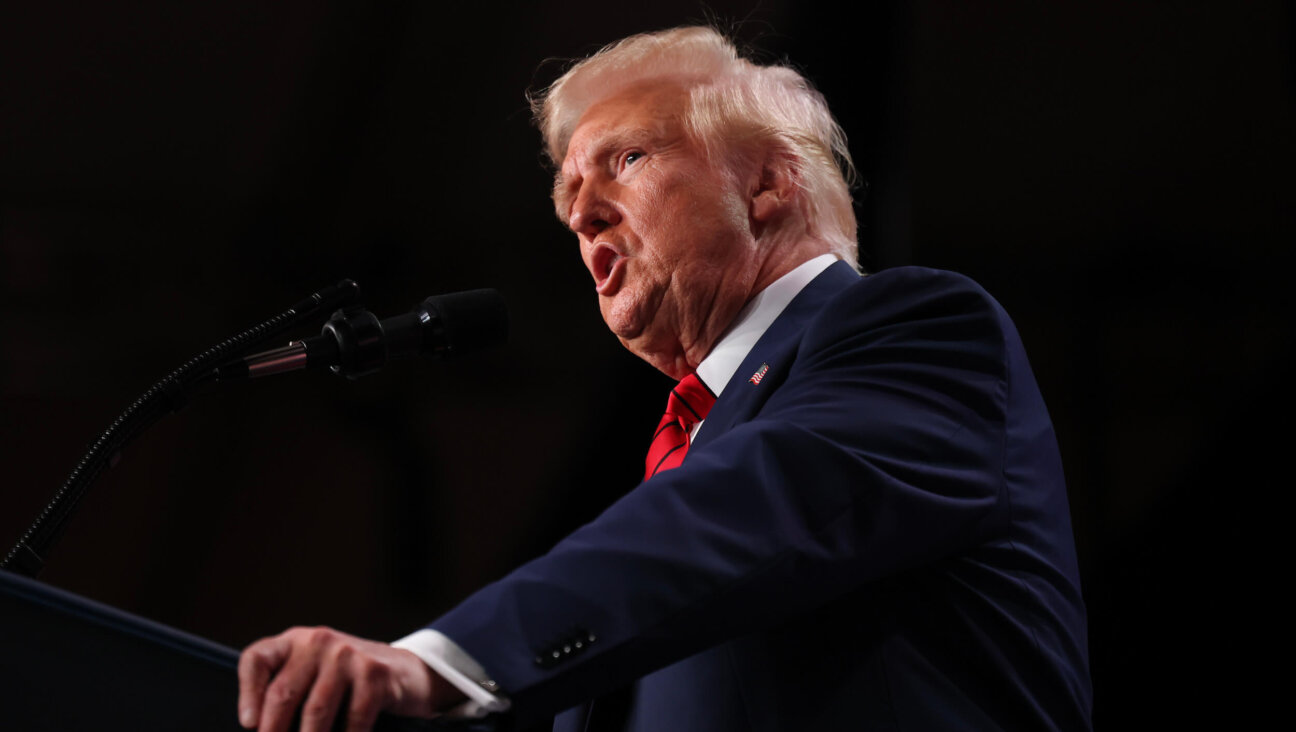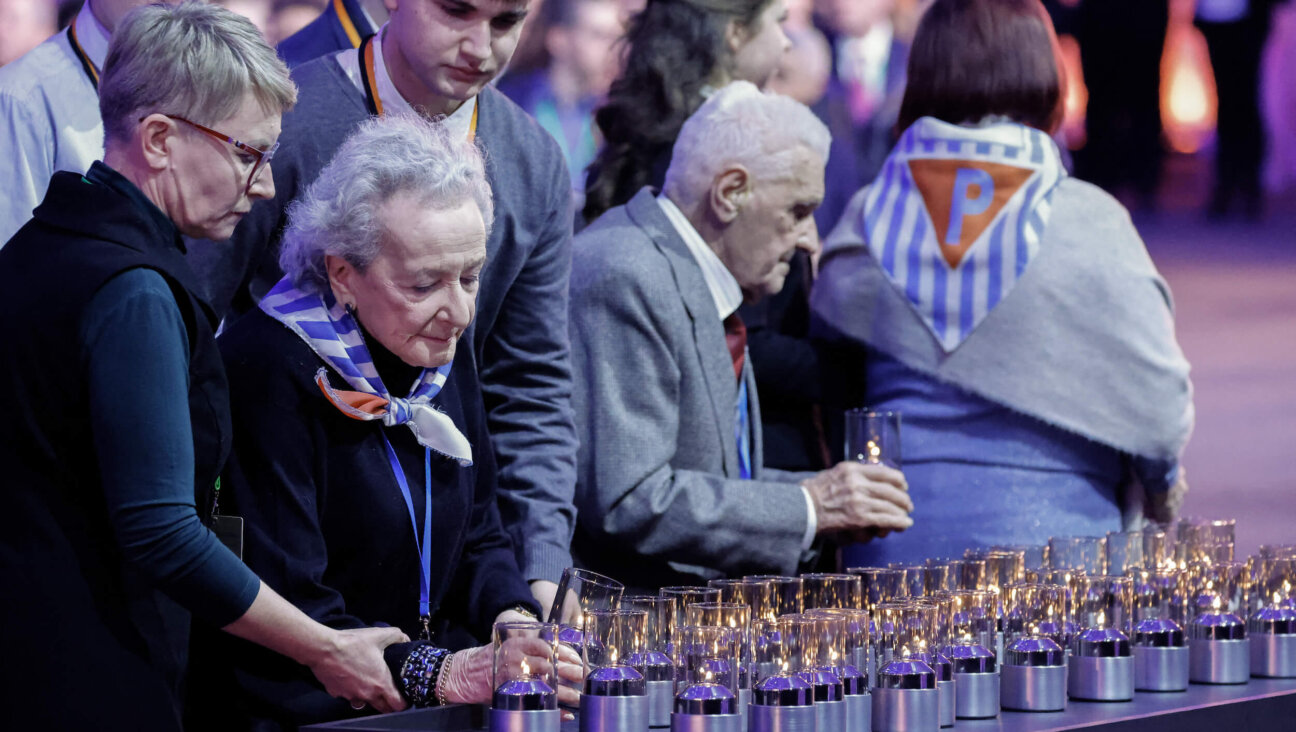He Who Could Command Legions of the Faithful
It often occurred to me when Rabbi Menachem Mendel Schneerson was alive, that he was the one person, aside from the Israeli prime minister and the Israeli military’s chief of staff, who commanded a Jewish army. Who else in Jewish life could instruct a young man or a young couple to go to a specific remote city and live there possibly for the rest of their lives — and still be obeyed?
Most people who grow up frum do not end up in Nashville, Tenn., or in Columbia, S.C., or in any of the other relatively small cities in which the rebbe determined there was a possibility for Jewish growth. It is the natural tendency of most observant Jews to remain in a community made up of people with like-minded views and lifestyles. The rebbe, whose 12th yahrzeit we observe June 29, realized that such a view amounted to giving up the possibility that the large majority of American Jews would ever be exposed to a vibrant and joyous halachic Judaism.
My father, Shlomo Telushkin, of blessed memory, served for nearly 50 years as an accountant both to the rebbe and earlier to his beloved father-in-law, Rabbi Yosef Yitzchak Schneersohn. He told me once of a conversation at which he had been present during which the discussion focused on the fact that the European rabbinic leadership had for so long written off America as a treif medina, an unkosher country, and did all within its power to discourage Jews — particularly knowledgeable committed Jews — from going there.
One of the consequences of this behavior was that American Jews as a group were, for a long time, quite Jewishly ignorant. The elder Rabbi Schneersohn quoted the biblical verse, “our fathers sinned but they are no more,” indicating his disapproval of the stance taken by earlier European rabbis.
The rebbe devoted much, if not most, of his efforts to undoing the ignoring of — and ignorance of — American Jewry. And he also concerned himself with every Jew. Indeed, one thing that has struck me about Lubavitch in so many of the communities I have visited is that to Chabad, there are no unimportant Jews.
True, all knowledgeable Jews are aware that the Talmud teaches that each life is of infinite value, but personally — and I say this with shame because it applies to me too — I know very few people who constantly live their lives by this teaching. Almost all of us have a tendency to ignore the less dynamic and professionally successful, but the movement generated by the rebbe is remarkable in the energy it expends on those people that most of the community find expendable.
Whether it’s attending to the burial needs of an unfamous and unwealthy person, or helping a family to kasher its kitchen, Lubavitch is there. This reflects on the goodness of so many Chabad shlichim, but it most assuredly reflects on the goodness of the man who was their model Jew.
As I know from my own family experience, the rebbe didn’t only concern himself with the masses, he concerned himself with individuals. In June 1986, while the rebbe was still in good health, my father suffered a serious stroke, one from which he never fully recovered. For several days he lay in a hospital bed in a coma, and I was with him when he awoke from his coma.
During those days, we were receiving calls twice daily from the rebbe’s office asking about my father’s condition. “The rebbe wants to know,” we were always told. A few days later, I received a call from Rabbi Yehuda Krinsky, the rebbe’s secretary and spokesman. He told me that an accounting issue had come up, and the rebbe had said, “Ask Shlomo.” Hence the call to me.
“But you know how sick and disoriented my father is?” I protested.
“We reminded the rebbe of that,” Krinksy answered, “He, of course, remembered, but he insisted that we ask your father.”
I immediately went back to my father’s room, and posed the question to him. He looked at me, puzzled, and said the answer was obvious, and told it to me.
At that moment, I experienced a profound sense of the rebbe’s deep humanity. He made a calculation and asked my father a question that he knew my father would be able to answer. Sitting there in his Brooklyn office at 770 Eastern Parkway and dealing with the issues confronting American and world Jewry, he had the moral imagination to feel the pain of one individual, my father, lying in a hospital bed, partially paralyzed, wondering if he would ever again be productive.
And so the rebbe asked him a question, and by doing so reminded my father that he was still needed, and could still be of service. This episode moved me when it happened 20 years ago, and moves me even more profoundly as I write about it now.
It is 12 years since the rebbe’s passing. Outreach is now a term with which we are all familiar — there is even an association of Jewish Outreach Professionals — but the rebbe was the one who first saw and articulated the need for outreach, the first to start sending out large numbers of people.
My mother, Helen Telushkin, of blessed memory, told me that when she was growing up as a child in New York in the early 1920s, she was sure she was witnessing the last generation of Orthodox Jews in the United States. The reason? She knew many Jews who had grown up observant and who had left it, but none who grew up non-observant and who embraced a life of tradition.
If today the observant community is vibrant, and if many non-observant Jews are choosing to lead more active Jewish lives, it is, in large measure, because of the work done by the rebbe. He helped change the whole direction of Jewish life, something that is achieved only by the rarest of individuals.
An old Oregon proverb teaches that you can only measure the height of an evergreen tree after it has been cut down. Twelve years ago, the rebbe was cut down.
And yet now, another miracle has happened. We can not only measure the tree but, as evidenced by the ever-expanding growth of Chabad, the tree itself continues to grow.
Joseph Telushkin is author, most recently, of “A Code of Jewish Ethics, Volume 1: You Shall be Holy” (Bell Tower/Harmony).
A message from our Publisher & CEO Rachel Fishman Feddersen

I hope you appreciated this article. Before you go, I’d like to ask you to please support the Forward’s award-winning, nonprofit journalism so that we can be prepared for whatever news 2025 brings.
At a time when other newsrooms are closing or cutting back, the Forward has removed its paywall and invested additional resources to report on the ground from Israel and around the U.S. on the impact of the war, rising antisemitism and polarized discourse.
Readers like you make it all possible. Support our work by becoming a Forward Member and connect with our journalism and your community.
— Rachel Fishman Feddersen, Publisher and CEO






















